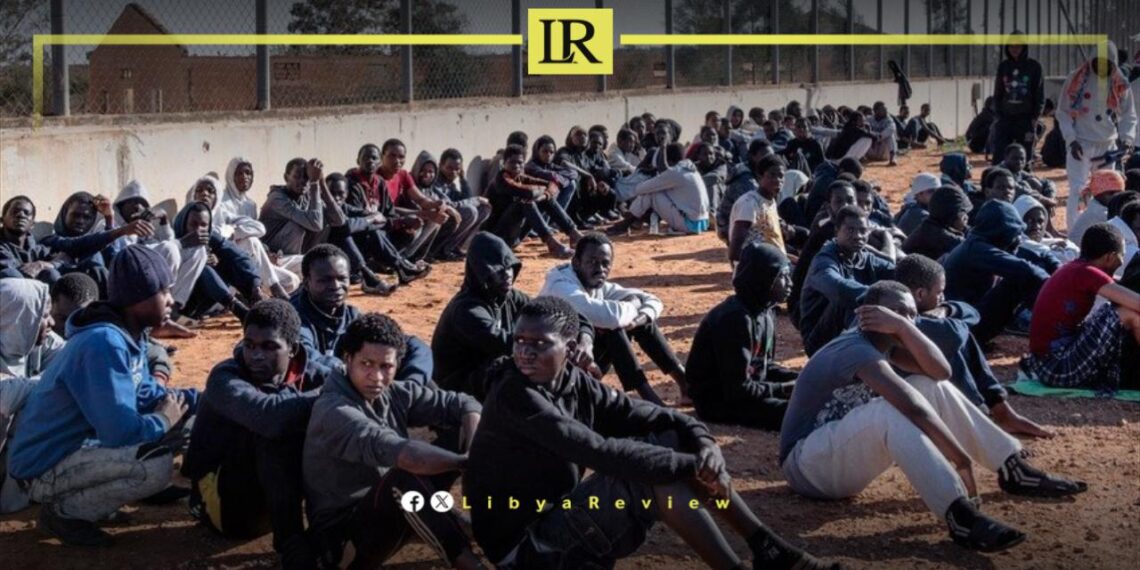On Saturday, Libyan authorities in Benghazi detained a large number of illegal migrants during recent police raids, as part of a broader effort to combat illegal migration across the country. The Benghazi Security Directorate announced the operation but did not specify the exact number of detainees.
The raids were conducted by the Al-Qawarsha Police Station, which targeted foreign workers to verify their legal status. According to the Directorate’s statement, many of the detained migrants were from Egypt, Sudan, and Chad, and most were found without proper legal documentation.
Following the arrests, the Al-Qawarsha Police Station worked closely with the Department for Combating Illegal Migration to process the detainees. The plan is to deport them back to their home countries as part of Libya’s ongoing campaign to reduce illegal migration within its borders. The Directorate emphasised that these operations will continue as part of a sustained effort to address the issue.
Libya has long been a key transit point for migrants and refugees aiming to reach Europe, particularly via the dangerous Mediterranean crossing. The country’s strategic location and the lack of strong border controls have made it a major route for those fleeing conflict, poverty, and instability in regions like sub-Saharan Africa, the Middle East, and South Asia.
Since the overthrow of Muammar Gaddafi in 2011, Libya has faced ongoing political turmoil and conflict, which has significantly weakened state institutions. This instability has made it difficult for the government to manage the large numbers of migrants passing through its territory. Many migrants hoping to cross into Europe find themselves stranded in Libya, often detained in centers with harsh conditions.
Human rights organizations have repeatedly raised concerns about the treatment of migrants in Libya. Detention centers are often overcrowded and lack basic sanitation, and there have been numerous reports of abuse. While the Libyan government, with some international support, has made efforts to improve these conditions, progress has been slow due to the ongoing conflict and political instability.


